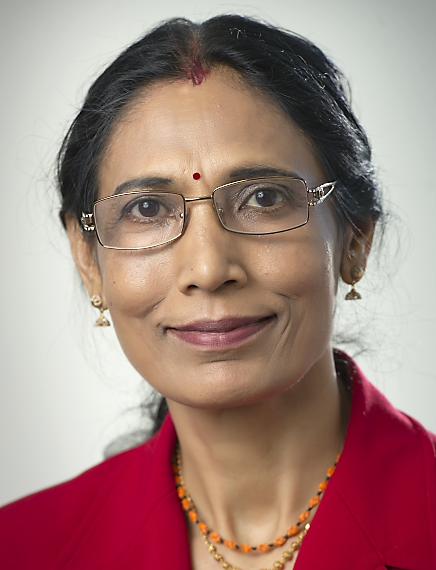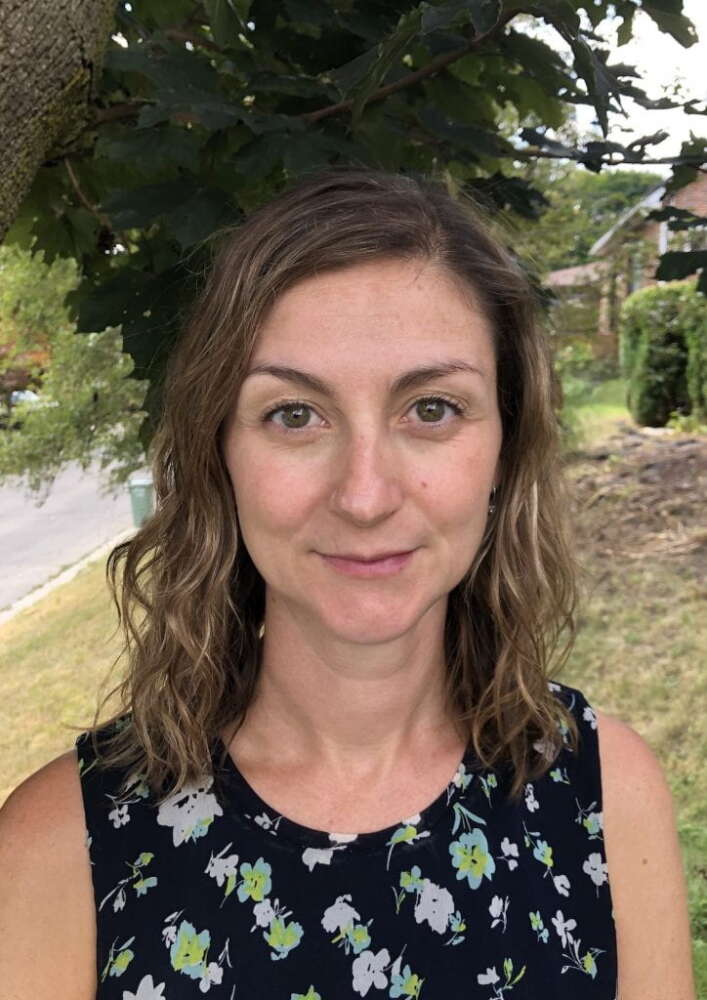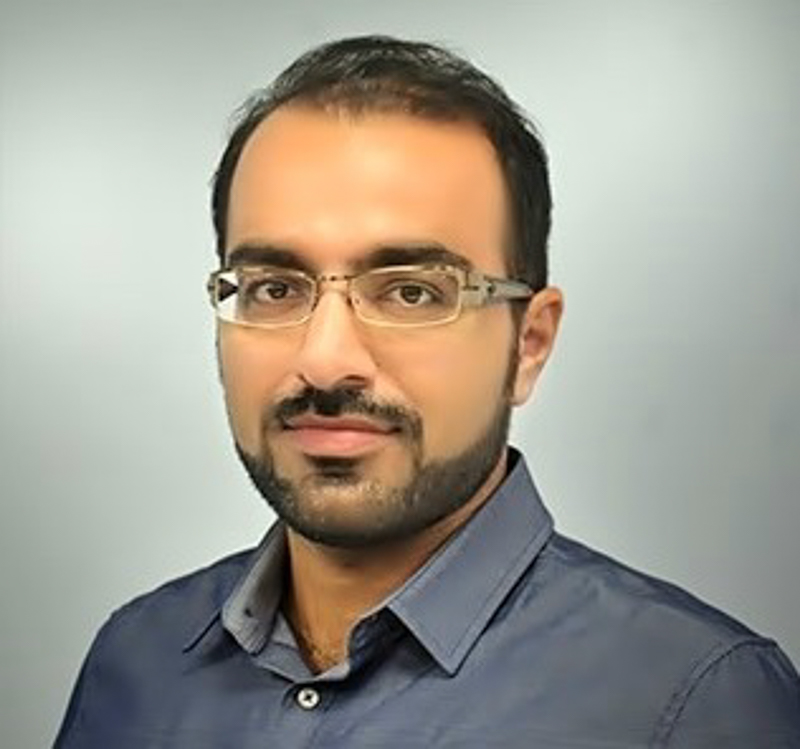 Four University of Guelph researchers aim to improve food, health, sustainability and cybersecurity with $3.1 million in new federal funding under the prestigious Canada Research Chairs (CRC) program.
Four University of Guelph researchers aim to improve food, health, sustainability and cybersecurity with $3.1 million in new federal funding under the prestigious Canada Research Chairs (CRC) program.
The funding is part of a $195-million federal investment announced today by Navdeep Bains, Minister of Innovation, Science and Industry, for 259 new and renewed chairs at 47 institutions across Canada.
At U of G, new chairs will be awarded to Drs. Manju Misra, School of Engineering; Heather Murphy, Department of Pathobiology; and Ali Dehghantanha, School of Computer Science. An existing chair will be renewed for Dr. Trevor DeVries, Department of Animal Biosciences. All are professors in their respective departments.
The Canada Foundation for Innovation (CFI) will also provide $14.2 million for infrastructure support of 58 chairs at 27 institutions, it was announced. Murphy and Dehghantanha will receive infrastructure funding through the John R. Evans Leaders Fund, developed by the CFI in collaboration with the CRC program.
Tier 1 chairs are considered world leaders in their field and receive $200,000 a year for seven years. Tier 2 chairs for potential leaders in their field are worth $120,000 annually for five years.
Launched in 2000, the federal program is intended to enable Canadian universities to attract and retain world-leading researchers.
“This tremendous recognition of outstanding University of Guelph researchers will enable them to continue to excel in advancing key sectors that improve lives for us all,” said Dr. Malcolm Campbell, vice-president (research).
“This federal investment in health, food, sustainability and cybersecurity will further strengthen U of G’s cutting-edge research in these fields and will support our outstanding researchers as they continue to convert their powerful discoveries into game-changing innovations that benefit people the world over.”
Guelph MP Lloyd Longfield said, “Congratulations to researchers at the University of Guelph in attaining Tier 1 and Tier 2 funding. These investments will keep Guelph in the lead in diverse fields like bioplastics, cybersecurity and animal welfare, improving life at all levels.”

Manju Misra
A new Tier 1 CRC in Sustainable Biocomposites will enable Dr. Manju Misra, School of Engineering, to develop next-generation materials from sustainable resources such as recycled plastics, plants, and farm and food wastes.
By creating innovative materials, she aims to reduce petroleum-based plastics in landfills, rivers and oceans, and reduce greenhouse gas emissions. Her research will help in achieving a circular economy that eliminates waste and encourages resource reuse.
“The CRC program provides the impetus for our tackling major performance and technological challenges that have held back the wider applications of bio-based materials,” said Misra, co-principal of U of G’s Bioproducts Discovery and Development Centre.
She said improving properties and functionality of bio-based carbon-rich and nano materials will benefit various sectors, including automotive, food and commercial packaging. The CRC will also enable her to expand national and global partnerships and collaborations, attract diverse talent to U of G and help strengthen Canadian contributions to sustainable development.

Heather Murphy
A U of G environmental engineering grad who joined the Department of Pathobiology this past September, Dr. Heather Murphy will hold a Tier 2 CRC in One Health.
An expert in water and wastewater treatment and environmental health, she has worked for UNICEF in Africa, developed a water-borne disease estimate as a researcher with the Public Health Agency of Canada and recently worked in the United States on water and sanitation.
Murphy heads the Water, Health and Applied Microbiology Laboratory in the Ontario Veterinary College, where she will support U of G’s One Health Institute. She also belongs to a campus-wide research project launched this year to test wastewater on university campuses for the virus that causes COVID-19.
“This CRC will help me broaden my research horizons, break down disciplinary silos and help me build research teams that can solve interdisciplinary, complex One Health problems at the intersection of human, animal and environmental health,” she said.

Ali Dehghantanha
As the holder of a new Tier 2 CRC in Cyber Security and Threat Intelligence, Dr. Ali Dehghantanha will use computing and artificial intelligence to help protect critical Canadian infrastructure from cyber attacks.
He said robust defences are needed to prevent hackers from compromising data and systems used in such applications as pipelines, turbines, smart transportation, finance and smart farming. Those are all important elements of Canada’s national cybersecurity action plan for 2019-24, intended to protect Canadians from cyber crime, defend public- and private-sector systems, and foster research and education.
Under the CRC, Dehghantanha will train post-docs and grad students to help meet a growing need for highly trained personnel in the field. “We will be filling a significant gap we have in cyber security in Canada and in the world in general,” he said. Director of U of G’s Cyber Science Lab, he also directs the master of cybersecurity and threat intelligence program launched in 2019.
“This CRC appointment reflects excellence and quality in research and teaching in cybersecurity at the University of Guelph.”

Trevor DeVries
Renewed this year is a Tier 2 CRC in Dairy Cattle Behaviour and Welfare held since 2015 by Dr. Trevor DeVries. He will receive $100,000 a year for five years.
By understanding the behaviour of dairy cattle, he aims to recommend optimal feeding, housing and management strategies. Those recommendations are intended to improve animal welfare, enhance production and ensure quality milk products for consumers.
“We’re ensuring a product that is not only nutritious but is also sourced from animals that have been raised with a high standard of welfare,” said DeVries.
Having studied production responses in animals over the past five years, he now plans to zero in on the individual behavioural and nutritional needs of dairy cows. This example of precision agriculture echoes the wider goal of sustainable food production shared by U of G’s Food from Thought program and Arrell Food Institute.
“The goal is to create precision nutritional strategies that improve individual animal welfare, minimize disease and target nutrient consumption in animals, thus minimizing nutrient waste and environmental impacts,” said DeVries.